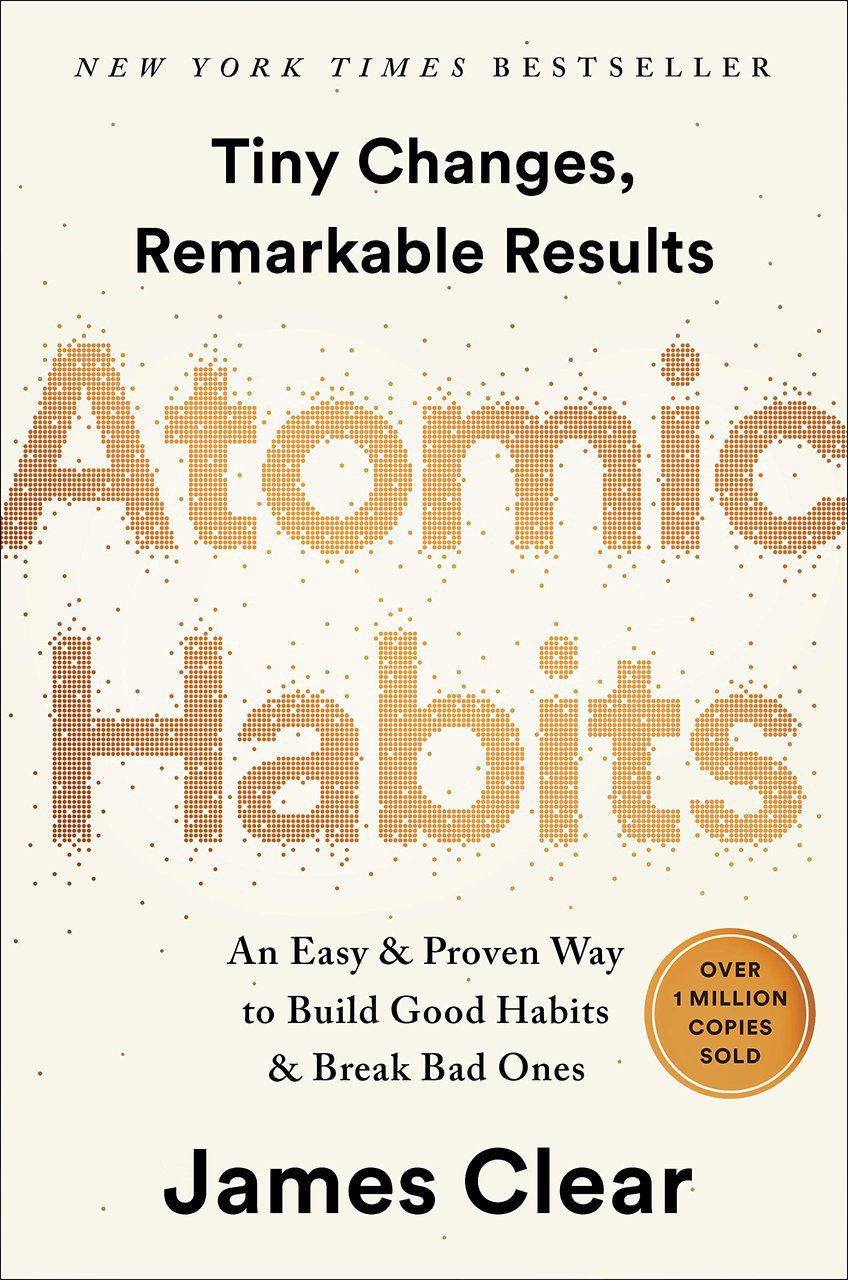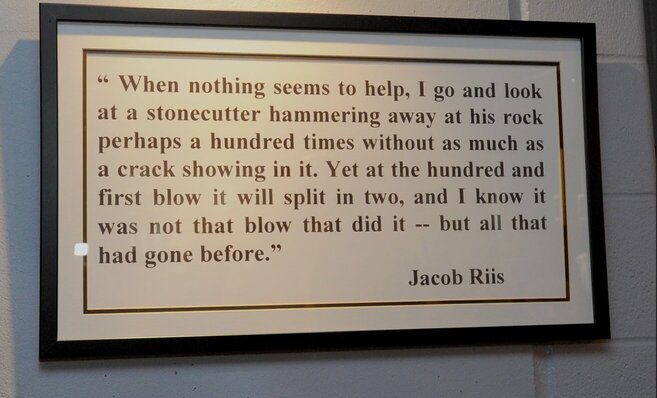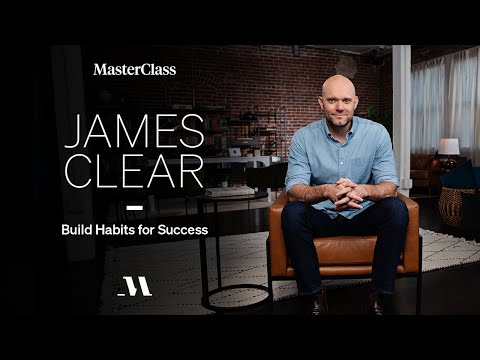The No. 1 NYT bestselling author of Atomic Habits: An Easy & Proven Way to Build Good Habits & Break Bad Ones, James Clear, disrupted the self-help industry by simplifying success for millions. From navigating hybrid work to resisting endless distractions, build habits that stick, break habits that suck—outsmart yourself—one small-but-mighty step at a time.

Getting 1 Percent Better Every Day – The British Competitive Cycling Example 1
The British cycling governing body had recently hired Dave Brailsford as its new performance director. At the time, professional cyclists in Great Britain had endured nearly one hundred years of mediocrity. Since 1908, British riders had won just a single gold medal at the Olympic Games, and they had fared even worse in cycling’s biggest race, the Tour de France. In 110 years, no British cyclist had ever won the event.
The Aggregation of Marginal Gains 1
The philosophy of searching for a tiny margin of improvement in everything you do. “Brailsford said, “The whole principle came from the idea that if you broke down everything you could think of that goes into riding a bike, and then improve it by 1 percent, you will get a significant increase when you put them all together.”
They redesigned the bike seats to make them more comfortable and rubbed alcohol on the tires for a better grip. They asked riders to wear electrically heated overshorts to maintain ideal muscle temperature while riding and used biofeedback sensors to monitor how each athlete responded to a particular workout. The team tested various fabrics in a wind tunnel and had their outdoor riders switch to indoor racing suits, which proved to be lighter and more aerodynamic.
As these and hundreds of other small improvements accumulated, the results came faster than anyone could have imagined.
Just five years after Brailsford took over, the British Cycling team dominated the road and track cycling events at the 2008 Olympic Games in Beijing, where they won an astounding 60 percent of the gold medals available. Four years later, when the Olympic Games came to London, the Brits raised the bar as they set nine Olympic records and seven world records.
That same year, Bradley Wiggins became the first British cyclist to win the Tour de France. The next year, his teammate Chris Froome won the race, and he would go on to win again in 2015, 2016, and 2017, giving the British team five Tour de France victories in six years.
During the ten-year span from 2007 to 2017, British cyclists won 178 world championships and sixty-six Olympic or Paralympic gold medals and captured five Tour de France victories in what is widely regarded as the most successful run in cycling history. 2
Why Habits Matter
- Almost every result you get is a lagging measure of the habits that precede them. Your physical fitness is a lagging measure of your training regimen, your bank statement is a lagging measure of your financial habits, and your productivity is a lagging measure of your prioritization habits.
- The results are actually not the things that need to change. It’s like fixing the inputs, and the outputs will fix themselves. Adjust the habits that precede the results, and you’ll be carried naturally to a different destination.
Your Worst Day is Good Enough
- What can I stick to even on my worst days?

When dreaming, think Big and when executing, think small.
Forget about setting goals, Setup Systems
- A system is a collection of daily habits that you follow.
- Iceberg Analogy: Your goal is the desired outcome that you see above the water’s surface. Your system is your collection of daily habits that allow you to achieve those goals. That’s the iceberg’s mass below the surface, allowing it to float.
We don’t rise to the level of our goals, we fall to the level of our systems.
Turning Goals into Systems
- Identify the goals you want to achieve
- Break the goals into smaller habits
- Repeat daily habits over time to create a system.
If you reclaim a habit when you fall short quickly, the breaking of it does not matter much. It is not about being perfect; it is about being consistent.
To change your habits, change your systems
- Goals are results; systems are about process
- Start with systems when you want to change your goals
- Goals are short-term; systems are long-term.
How Habits Change Our Identity
- Identity is a two-way street, it can either support the habits that you’re trying to build, or it can hinder or prevent them.
The Layers of Behaviour Change: Outcomes, Process and Identity
- Layers of behaviour change are like the layers of an onion. The outer layer is the outcome, your result and the obvious thing when people think about changing their behaviour. One layer in the onion is the process, system, plan, approach, and strategy for achieving that result. The innermost layer is the identity – who do I want to become?
- To reshape your identity: Determine who you want to become and create habits that support that identity.
- Creating a New Habit: Take your ultimate goal, translate the goal into an identity and figure out a habit that reinforces being that person.
Habit: The strategies we follow to solve the problems we repeatedly face.
The Habit Feedback Loop: Cue, Craving, Response, Reward
How to Create a Good Habit
- The 1st law (Cue): The trigger that tells your brain to initiate a habit. Make it obvious.
- The 2nd law (Craving) is the desire or motivation for a particular outcome. Make it attractive.
- The 3rd law (Response): The thought or action you take to form the habit. Make it easy.
- The 4th law (Reward): The payoff you get from the habit. Make it satisfying
How to Break a Bad Habit
- Inversion of the 1st law (Cue): Make it invisible.
- Inversion of the 2nd law (Craving): Make it unattractive.
- Inversion of the 3rd law (Response): Make it difficult.
- Inversion of the 4th law (Reward): Make it unsatisfying.
Implementation Intention: A specific plan for when and where you are going to implement the habit.

MasterClass is a streaming platform that makes it possible for anyone to learn from the very best. MasterClass is an online membership – accessible on your phone, web, Apple TV, Roku devices, and Amazon Fire TV – that offers classes on a wide variety of topics taught by 90+ world-class masters at the top of their fields.
Their immersive learning experiences combine incredible video content, downloadable materials, and social interaction with the MasterClass community, all of which users can explore at their own pace.
The annual membership is available for $180 USD, which allows unlimited access to ALL on demand MasterClass content for the year
Give One Annual Membership. Get One Free.
All the best in your quest to get better. Don’t Settle: Live with Passion.
For More Information: MasterClass Home Page



Comments are closed.